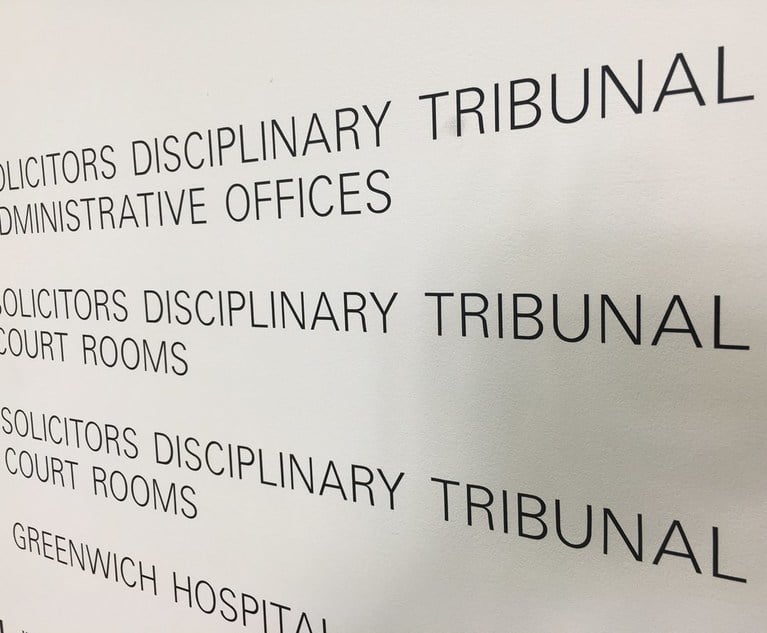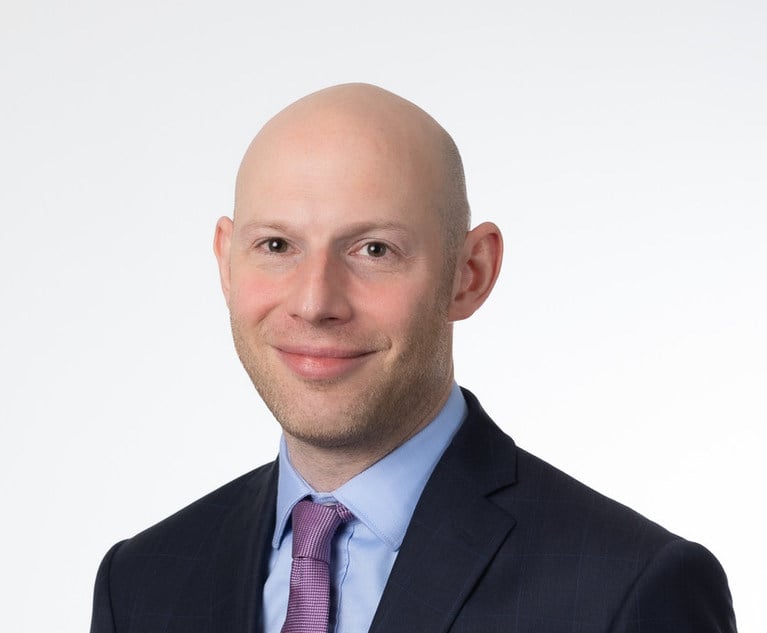Pretend Professionals: Rise of Fake Lawyers Threatening Legal Practice in Africa
The sensational story of a non-lawyer allegedly masquerading as a qualified attorney in Kenya has led to growing concerns of 'widespread' malpractice across the continent.
October 31, 2023 at 05:30 PM
5 minute read
The sensational story of a non-lawyer impersonating a qualified attorney to win cases in Kenya mirrors perfectly the fictional narrative in the American TV series Suits, wherein a college dropout excelled in the legal profession without a formal degree. But this time the character is not Mike Ross.
Brian Mwenda, according to the Kenyan bar association, stole the identity of a lawyer with a similar name, forged a law degree certificate and attempted to obtain a legitimate bar practising certificate through fraudulent Business Email Compromise (BEC) methods.
Although the Law Society of Kenya (LSK) acknowledged Mwenda had previously represented some clients in court, they refuted the social media claims of his 'fabricated' victories and have brought legal charges against him, including forgery, deceit and intent to defraud.
During his initial appearance before a magistrate in Nairobi, Mwenda pleaded not guilty to the six-count charge and was remanded in prison until a former Nairobi governor, Mike Sonko, secured his bail.
Danstan Omari, one of Mwenda's legal representatives in court, told Law.com International that his client possesses the "necessary qualifications" to practise and the burden of proving otherwise is on the prosecution.
Although silent on the specifics of the qualifications Mwenda has, Omari assured that his client is innocent and certain that he would be acquitted.
LSK president Eric Theuri has pointed out that Mwenda's case is one out of at least 15 instances of fake lawyers nabbed in the past one year with only a few convictions and some ongoing trials.
"I think we have had about 15 to 20 cases in the last one year. They are clerks or people who are advocating for people but they are not qualified to do so," said Theuri. "So of course the case that became notorious was this one because of social media allegations that he won about 26 cases which were fabrications and the fact that someone who was a former governor came out and supported him."
"There are people who have been sentenced to about three years in jail, we also have quite a number of cases that are ongoing and we are hopeful upon their completion," he added.
Theuri also mentioned that, in addition to the criminal charges Mwenda is facing, one of his past clients has sued him in a small claims court.
"The clients are coming out slowly. There is one who has already taken him to court. She has already taken legal actions to recover the money she paid him because he misrepresented to her that he is a lawyer," he said, adding that some of the cases he handled will be reviewed.
Growing Concern in Africa
This rise of pretend legal professionals is not isolated to Kenya alone but is a growing concern across law societies across African jurisdictions.
These impostors sometimes represent litigants in court, draft legal documents and participate in court processes.
Bowmans' Kenya managing partner Paras Shah told Law.com International that the practice is widespread and the fake lawyers prey on victims who are less sophisticated and educated, especially in litigation and land matters.
While some are swiftly detected for obvious lack of professionalism, tried and jailed, others may operate for over a decade before they are found out.
In Nigeria, for instance, an impostor had practised for over 15 years before he was arrested in 2018 when he was making a bail application for his client in a state court.
A senior partner at Tanzanian firm Rex Attorneys, Dr Fauz Twaib, who had been a victim, attributed the rise of such incidents to the substantial increase in the number of lawyers in the region.
"I think it was in 2019 when I was a judge of the High Court and somebody attested an affidavit in my name. He pretended to be me, attesting somebody's affidavit and using a stamp in my name. Fortunately, the document got to court and the lawyer on the other side discovered that this particular person is a judge—he is not practising as a lawyer—so he pointed this out to the magistrate and the magistrate made enquiries," Twaib recounted.
Twaib's impostor made some excuses and pleaded that no criminal action be taken against him.
The senior lawyer said: "It is something that could happen because there are so many lawyers around and it is becoming more common these days."
Twaib, who also presides over the East African Law Society (EALS), stated the Tanzanian bar currently has over 11,000 advocates, noting that it's not easy to monitor one lawyer closely.
Working With Law Enforcement
To combat the surge of the pretend professionals, LSK president Theuri emphasised the need for law societies to collaborate with police and other law enforcement agencies available in the jurisdiction.
"[We must] work with law enforcement agencies to ensure that these fake lawyers are arrested and prosecuted, and the convictions are publicised as much as possible so that people can have some fear," he said.
He added that it may also require the law societies to be vigilant, inspecting law offices and sensitise the public on the dangers of being represented by unqualified persons.
But Bowman's Shah advised that as the LSK undertakes education campaigns across the country, it should also focus on ethics in the profession, because a lot of people "have also been duped by practising lawyers".
This content has been archived. It is available through our partners, LexisNexis® and Bloomberg Law.
To view this content, please continue to their sites.
Not a Lexis Subscriber?
Subscribe Now
Not a Bloomberg Law Subscriber?
Subscribe Now
NOT FOR REPRINT
© 2024 ALM Global, LLC, All Rights Reserved. Request academic re-use from www.copyright.com. All other uses, submit a request to [email protected]. For more information visit Asset & Logo Licensing.
You Might Like
View All
Axiom-Ince: SFO Charges Five, Including Former Head, Following Investigation
3 minute read
SDT Upholds SLAPP Claim Against Osborne Clarke Partner Advising Nadhim Zahawi
3 minute read
Ex-Ashurst Spanish Partner Referred to SDT Over ‘Inappropriate’ Behaviour Allegations

The SLAPP Heard Around the World: SDT Hearing Draws Industry Attention
5 minute readTrending Stories
Who Got The Work
Michael G. Bongiorno, Andrew Scott Dulberg and Elizabeth E. Driscoll from Wilmer Cutler Pickering Hale and Dorr have stepped in to represent Symbotic Inc., an A.I.-enabled technology platform that focuses on increasing supply chain efficiency, and other defendants in a pending shareholder derivative lawsuit. The case, filed Oct. 2 in Massachusetts District Court by the Brown Law Firm on behalf of Stephen Austen, accuses certain officers and directors of misleading investors in regard to Symbotic's potential for margin growth by failing to disclose that the company was not equipped to timely deploy its systems or manage expenses through project delays. The case, assigned to U.S. District Judge Nathaniel M. Gorton, is 1:24-cv-12522, Austen v. Cohen et al.
Who Got The Work
Edmund Polubinski and Marie Killmond of Davis Polk & Wardwell have entered appearances for data platform software development company MongoDB and other defendants in a pending shareholder derivative lawsuit. The action, filed Oct. 7 in New York Southern District Court by the Brown Law Firm, accuses the company's directors and/or officers of falsely expressing confidence in the company’s restructuring of its sales incentive plan and downplaying the severity of decreases in its upfront commitments. The case is 1:24-cv-07594, Roy v. Ittycheria et al.
Who Got The Work
Amy O. Bruchs and Kurt F. Ellison of Michael Best & Friedrich have entered appearances for Epic Systems Corp. in a pending employment discrimination lawsuit. The suit was filed Sept. 7 in Wisconsin Western District Court by Levine Eisberner LLC and Siri & Glimstad on behalf of a project manager who claims that he was wrongfully terminated after applying for a religious exemption to the defendant's COVID-19 vaccine mandate. The case, assigned to U.S. Magistrate Judge Anita Marie Boor, is 3:24-cv-00630, Secker, Nathan v. Epic Systems Corporation.
Who Got The Work
David X. Sullivan, Thomas J. Finn and Gregory A. Hall from McCarter & English have entered appearances for Sunrun Installation Services in a pending civil rights lawsuit. The complaint was filed Sept. 4 in Connecticut District Court by attorney Robert M. Berke on behalf of former employee George Edward Steins, who was arrested and charged with employing an unregistered home improvement salesperson. The complaint alleges that had Sunrun informed the Connecticut Department of Consumer Protection that the plaintiff's employment had ended in 2017 and that he no longer held Sunrun's home improvement contractor license, he would not have been hit with charges, which were dismissed in May 2024. The case, assigned to U.S. District Judge Jeffrey A. Meyer, is 3:24-cv-01423, Steins v. Sunrun, Inc. et al.
Who Got The Work
Greenberg Traurig shareholder Joshua L. Raskin has entered an appearance for boohoo.com UK Ltd. in a pending patent infringement lawsuit. The suit, filed Sept. 3 in Texas Eastern District Court by Rozier Hardt McDonough on behalf of Alto Dynamics, asserts five patents related to an online shopping platform. The case, assigned to U.S. District Judge Rodney Gilstrap, is 2:24-cv-00719, Alto Dynamics, LLC v. boohoo.com UK Limited.
Featured Firms
Law Offices of Gary Martin Hays & Associates, P.C.
(470) 294-1674
Law Offices of Mark E. Salomone
(857) 444-6468
Smith & Hassler
(713) 739-1250








